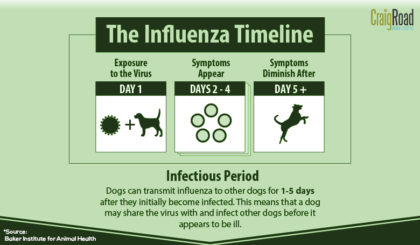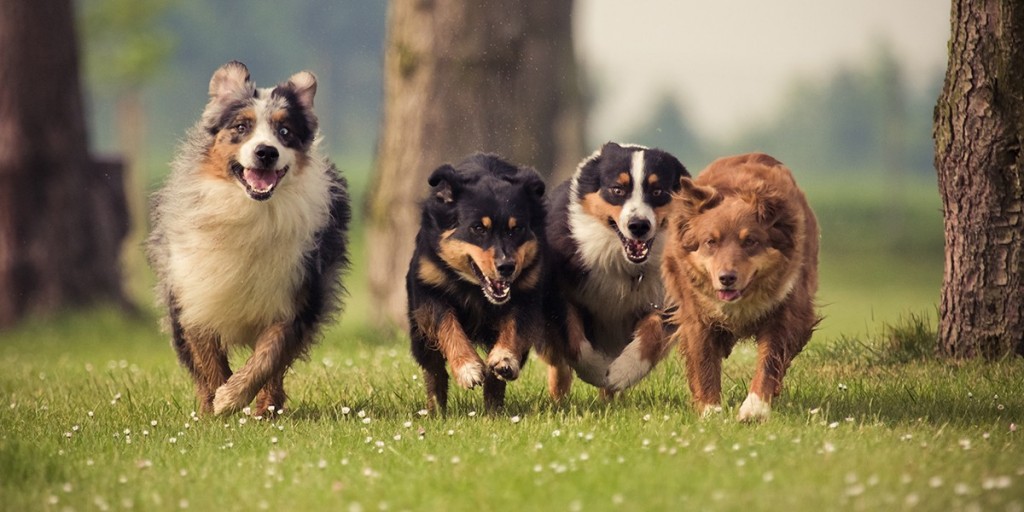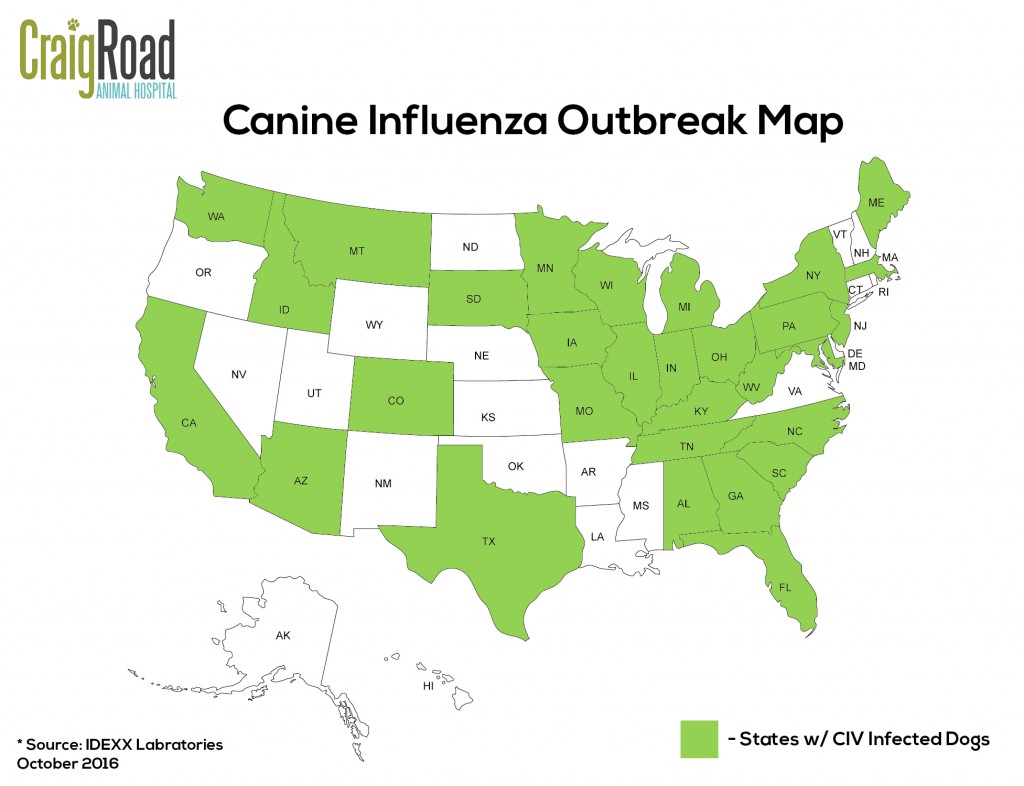Veterinarian Kurt Mychajlonka D.V.M. of Craig Road Animal Hospital in North West Las Vegas talks Canine Influenza.

Dr. Mychajlonka
By: Kurt Mychajlonka D.V.M.
With the continuing dog flu outbreak in multiple states, dog owners are concerned about what they can do to mitigate the risk posed to their pets. To date, over two thousand dogs have become sick with the highly contagious Canine Influenza virus and at least six have died.
Currently there are two known strains of canine influenza, also known as The Dog Flu, which have now been identified in the United States. The original influenza virus identified in 2004 and was typed as H3N8. Dogs involved the most recent outbreak were originally thought to have H3N8, but testing identified a new subtype, H3N2.
Strains of canine influenza often cause a loss of appetite, fever, coughing, nasal discharge, lethargy. About 50-80% of infected dogs have symptoms of mild kennel cough, this includes sneezing, a runny nose, eye discharge, and a cough-like sound made by some dogs, especially small ones, which is called a reverse sneeze. What’s more worrisome is that some dogs who are exposed to the virus never actually develop symptoms but can still infect others.

The typical recovery period for dogs is like a mild form of kennel cough; between 10 to 30 days after symptoms develop. Dogs with an acute form rapidly fall ill within 4 – 6 hours and have fevers which run between 104 to 106 degrees. Currently, there isn’t any evidence that canine influenza is contagious to humans. However, the H3N2 form could potentially be transmitted to cats.

If you suspect your dog of having canine influenza, make sure to remove them from any dog related activities. Isolation is the only way to make sure the virus isn’t spread to other pets. Mild cases are treated with cough suppressants, rest, and supportive care. If a secondary bacterial infection is suspected, antibiotics are used to mitigate the contamination. However, severe cases may require hospitalization, IV fluids, and oxygen support.
Just this year, the dog influenza virus was spotted in California for the first time. Pet owners in Las Vegas can have the “it doesn’t happen here” mentality. Sometimes we get ahead of ourselves and think we live in a bubble void of infectious diseases for our pets. Unfortunately, all it takes is one dog infected with canine influenza to bring the virus to an area. It is not a case of if there will be an outbreak of canine influenza in Las Vegas, but when.

The good news is that now there is now a vaccine for both H3N8 & H3N2 strains of canine influenza. This immunization should be considered for dogs who visit dog shows, grooming salons, boarding facilities, doggie day care, or those that participate in group dog activities. It is also recommended for dogs who are considered ‘at risk’. These include puppies, aging dogs, and those who are known to have a weak resilience to infections.
Outbreaks of dog flu occur when the virus infects naïve dogs. A naïve dog is one who hasn’t ever been exposed to the virus, or that hasn’t been vaccinated against virus. By vaccinating more dogs in our area for canine influenza, we can in essence “protect the herd”.
There are a few other common sense tips to prevent your dog from acquiring dog flu, these include: washing your hands after petting or contacting other dogs, avoiding contact with unknown dogs, and avoiding shared water bowls or items in public areas.
There is always some inherent risk of infectious disease in any group dog activity. By participating in these activities you offer your dog the benefits of physical exercise, mental stimulation, confidence, and decrease their boredom as well as their destructive behaviors. Therefore, there is little basis for limiting your dog’s activities unless an outbreak is reported in your area.
Vaccination for canine influenza doesn’t prevent dogs from becoming infected, but rather decreases the severity and duration of illness. The immunization also causes an infected dog to shed less virus that could infect other dogs.
Starting in January 2017 at Craig Road Animal Hospital we will start recommending that dogs are who are boarding are vaccinated for both strains of canine influenza. On June 1st, 2017, it will become mandatory for all boarding dogs to be vaccinated for both strains for the protection of all boarding pets as well as our patients. If you have any questions or concerns, please consult your veterinarian.

